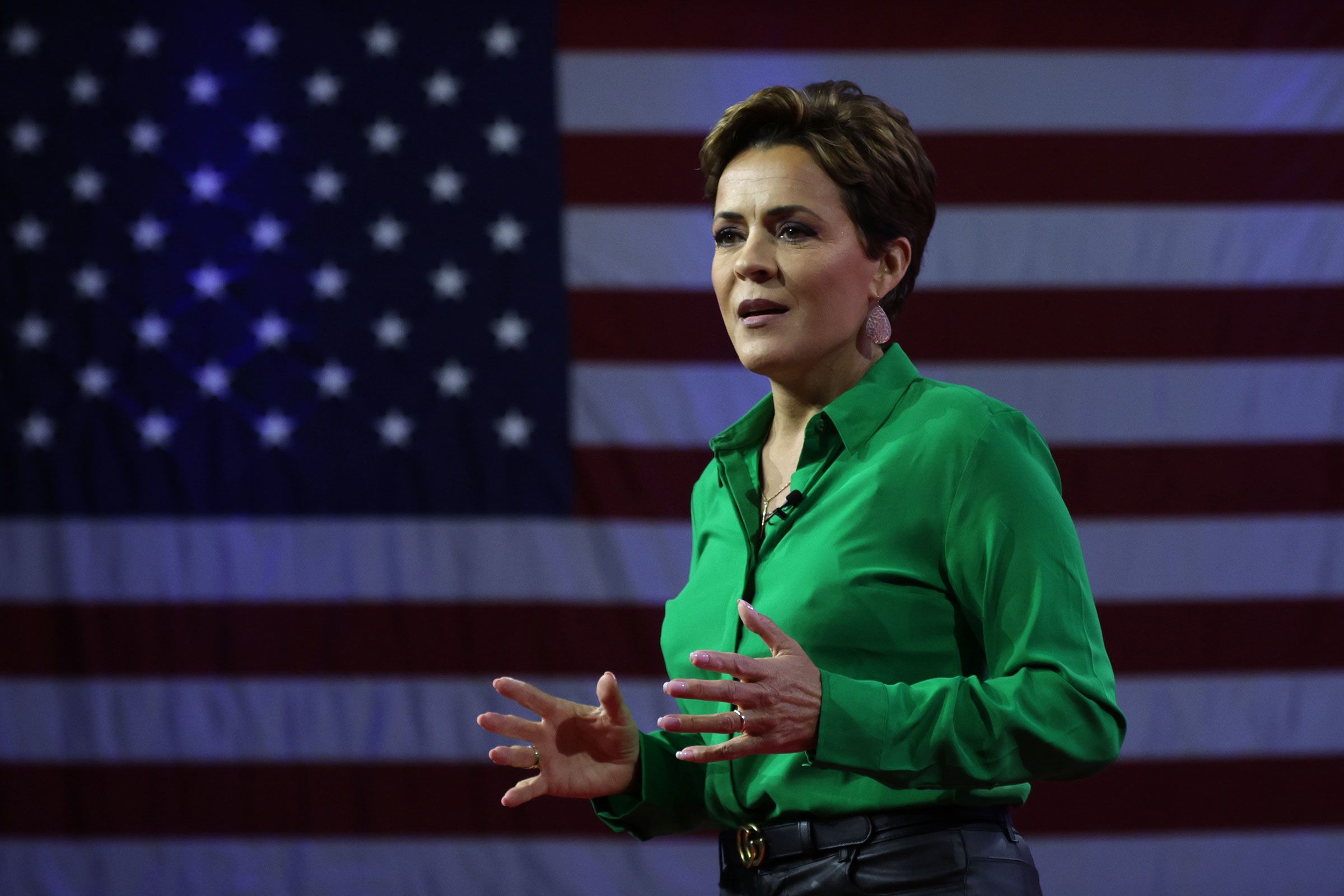Despite advice from GOP leaders to focus on future-oriented campaign messaging, Arizona Senate candidate Kari Lake continues to voice grievances about past elections. While Lake acknowledges her upcoming challenge against Democratic candidate Rep. Ruben Gallego, she remains unafraid to echo former President Donald Trump’s unfounded theories about the election as she campaigns for a pivotal Senate seat in a battleground state.
In a comprehensive interview with CNN last week, Lake maintained there were “major problems” with her unsuccessful gubernatorial bid and falsely asserted the 2020 election was “rigged.”
“I think it was a rigged election. … I believe it was. But what I’m trying to do is look forward,” she said in the interview, which will air on Sunday’s “Inside Politics” with Manu Raju. “I do continue to talk about it when I’m on the campaign trail in Arizona. … When I’m on the campaign trail, the people care deeply about it.”
Despite Trump’s claims that the election was “stolen” being dismissed by the courts and numerous officials from his administration and campaign, Lake continues to echo the same election denialism. This suggests a challenge in moderating her far-right instincts, even as establishment Republicans may urge her to moderate her rhetoric ahead of the crucial race this fall.
Sen. Steve Daines of Montana, the head of the Senate GOP’s campaign arm, and GOP Sen. John Barrasso of Wyoming, who has also endorsed Lake, have both encouraged her to focus on future-oriented messaging. However, when asked about her own race, Lake shifted the conversation to immigration and the border, while baselessly casting doubt on the 2022 Arizona election results.
Democrats argue that Lake’s rhetoric about the border mirrors far-right fringe theories about the party intentionally allowing immigrants into the country to gain an electoral advantage. In response to Lake’s comments, a Gallego campaign spokeswoman stated that Lake “will say or do anything to gain power, including ban abortion and challenge the results of the 2020 and 2022 elections.”
CNN’s Manu Raju contributed to this report.

